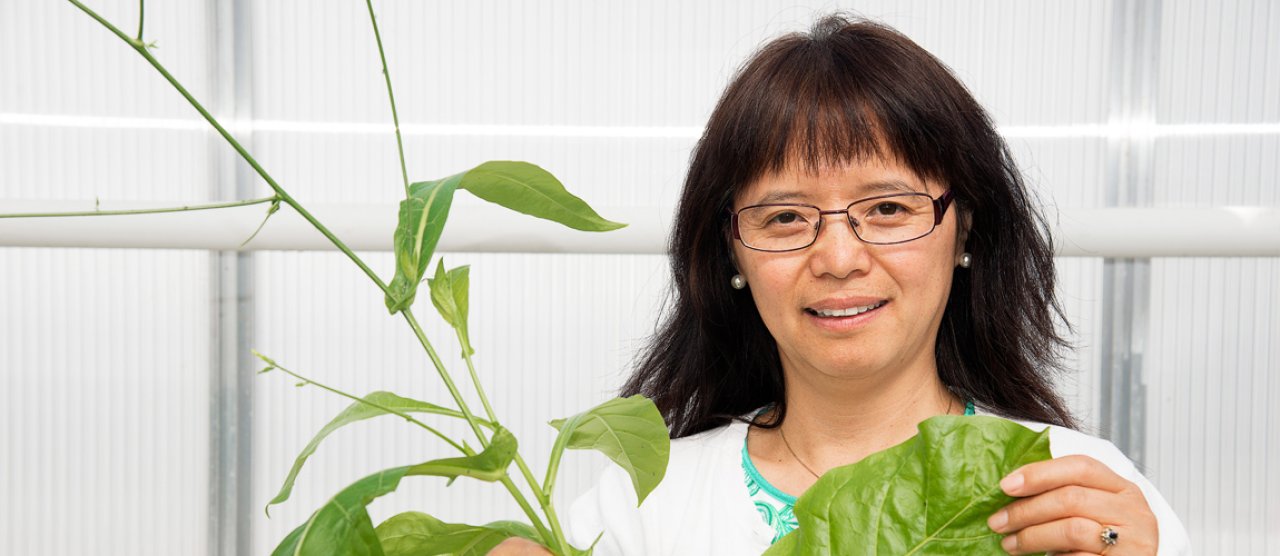Running dates: Sep 9th – 20th, 2024
Application deadline: Sep 1st, 2024
ECTS: 5
Application: see below
Location: Ås (NMBU and Nibio)
Course leader
Practical info
The responsible institution is NMBU with the course code BIO411, but the course is given by Nibio. Application to course is open from July 1st to September 1st.
The course will run on site at Ås.
Important! Registration is binding! Do not apply for a course unless you are sure that you can attend.
Application info will provided as soon as it is ready.
Course content
Plants have many important applications as food, feed, medicine etc. In addition, plants can be used as a green factory to produce high value recombinant proteins e.g. human and animal vaccines for injection and/or oral administration, therapeutics, and enzymes with various applications. This hands-on training would allow the students and researchers to understand the potential of plants and how to use the plant biotechnological tools and the green plant resources for the benefit of people, animals, and bio-based economy. You will learn the theory behind through lectures, and the key steps of the technology through hands-on training. Both Nicotiana benthamiana and lettuce plants will be used to produce:
- A salmon viral vaccine antigen
- A red fluorescent protein (RFP) reporter gene
Learning outcome
Knowledge about plant biotechnology including CRISPR genome editing, and the advantages and limitations of using plants to produce desirable high value proteins.
Skills on hands-on training using “learning by doing” approach to provide students with the opportunity to produce a candidate salmon viral vaccine antigen and RFP reporter gene. Students will also carry out laboratory analysis of one’s own products using PCR and evaluation the PCR result.
Teaching methods
Lectures, lab, and seminar:70 h
Reading course materials, self-study, home assignment – case study on an application of plant-based compound production: 80 h.
Teaching support: Canvas
Prerequisites
Plant biotechnology course equivalent to NMBU 200 level course
Plant molecular biology course equivalent to NMBU 200 level course
Assesment method
Approved case-study report and lab report (passed/failed).
Mandatory activity
Mandatory work requirements for admittance to the exam (graded essay) are:
1. The attendance of all lectures
2. The performance of all lab activities after an appropriate familiarization with the course information material
3. The presentation of a seminar topic
Language
English.
Day-by-day plan for the course
| Date | Course activity | Responsible |
| Week 1 | ||
| Day 1 (Monday) | Arrival and registration | |
| Day 2 (Tuesday) | Lecture about Plant biotechnology and plant-based production system for high value proteins Students received reading materials for the seminar in week 2 | Jihong Liu Clarke and Odd Arne Rognli |
| Day 3 (Wednesday) | Introduction about plant preparation in the greenhouse and receive protocols | Hege Steen, Sissel Haugslien and Inger Heldal, |
| Day 4-5 (Thursday -Friday) | Production of salmon viral antigen and RFP gene in N. benthamiana (tobacco relative) and lettuce plants Laboratory training for post production analyses | Hege Steen Inger Heldal Andre von Eerde |
| Day 6-7 (Saturday-Sunday) | Free | Student self |
| Week 2 | ||
| Day 8 (Monday) | Trip to visit a vertical farming industry and see the urban lettuce production | Jihong Liu Clarke |
| Day 9- 10 (Tuesday-Wednesday) | Harvest leaves expressing the vaccine antigen and RFP gene, isolation of genome DNA from the leaves and run PCR analysis | Hege Steen, Inger Heldal |
| Day 11 (Thursday) | CRISPR genome editing lecture and basic practical training | Tage Thorstensen |
| Day 12 | Student seminar and presentation Submit brief laboratory report | Odd Arne Rognli, Jihong Liu Clarke and Tage Thorstensen |
For questions regarding the research school
For Photosyntech: contact Sunniva Katharina Thode at photosyntech@uit.no

